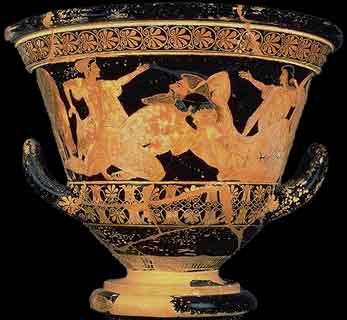Merry christmas and happy new year to all
a few days ago i finished reading herodotus's stories and xenophon's anabasis. when i confronted the two greek versions and noticed the two "dialects" are not that different, at least for the passages i've read. so what were the real differences in the various greek dialects? like spartan or siracusan? and for that matter what did the makedons, the epeirotes and the getai speak?
During this vacation I'm not at home so i wont be able to reply to your answers soon.
thx in advance Cyrus
P.S. i meant to write iin the title Koinon dialekton.








 Reply With Quote
Reply With Quote





Bookmarks